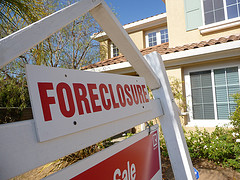
Posted on 16 March 2009. Tags: Business, Citibank, credit, Debt Management, debt management expert, Finance, Financial Services, Foreclosure, hire negotiator, Loan Modification, mortgage, mortgage modification, United States
 If you’re having trouble keeping up with your mortgage payments, then perhaps a mortgage loan modification might be the answer. A loan modification can reduce your monthly mortgage payments and help you keep current with your mortgage based upon your financial means. However, when you talk to your bank or mortgage lender about a modification, are your or the bank’s best interest involved?
If you’re having trouble keeping up with your mortgage payments, then perhaps a mortgage loan modification might be the answer. A loan modification can reduce your monthly mortgage payments and help you keep current with your mortgage based upon your financial means. However, when you talk to your bank or mortgage lender about a modification, are your or the bank’s best interest involved?
The bottom line is the answer to this question. The bottom line for the lender is to make income in the form of interest on money they lend to others. If a borrower fails to make payments as agreed in the mortgage terms, then the lender may have no choice but to foreclose on the home and recoup their losses on the resale of the home. Usually a foreclosure is a great expense to the lender in attorney’s fees, filing fees, and losses incurred while holding the property for sale. All efforts to avoid foreclosure should be taken by the lender, including modifying the loan in extreme cases to help a borrower repay the loan.
Getting Professional Modification Help
Although foreclosures are not desired by lenders, they still have many strict guidelines in making and modifying mortgages to suit the owners and investors of the lending company. Subsequently, it may appear ironic that lenders want to avoid foreclosure, but are also not willing to work with borrowers to negotiate a reasonable settlement for both parties.
A professional foreclosure help specialist company can help you with a loan modification by talking to your bank directly and working with them on your behalf to resolve a mortgage into more affordable terms. These companies are usually run by experts in the mortgage finance industry and present many advantages over a DIY endeavor:
Experience – Many of these professional modification negotiators have been operating for years and have extensive experience in negotiating new mortgage terms. They are familiar with the foreclosure and loan modification process and know what it takes to reach a deal, with even the most stubborn lenders.
Contacts – Foreclosure help specialists usually work with the biggest loan mortgage companies in the country and have many contacts within each. By having and continuing good relations with lenders, they have an upper hand in renegotiating your contract.
Results – In most cases, foreclosure help can secure an agreeable mortgage modification that is acceptable by both lender and borrower. If not, then they can work with the lender on an exit plan to avoid foreclosure by a short sale. In a short sale, you may end up selling your home for less than is owed on the mortgage, but the lender accepts the short amount and writes off the balance. This bodes much better for your credit report than foreclosure.
Posted in Tips & Tools for a Loan Modification

Posted on 16 March 2009. Tags: Debt Management, debt management expert, Foreclosure, hardship letter, loan, Loan Modification, mortgage, mortgage modification, Notice of Default, Short Sale
 If you are having trouble keeping up with your mortgage payments and find yourself needing foreclosure help, you are not alone. Millions of homeowners have lost their homes due to foreclosure over the last few years. In 2008 alone, over three million foreclosures occurred in the United States. If you are in foreclosure now, what should you expect and how can you manage this stressful situation?
If you are having trouble keeping up with your mortgage payments and find yourself needing foreclosure help, you are not alone. Millions of homeowners have lost their homes due to foreclosure over the last few years. In 2008 alone, over three million foreclosures occurred in the United States. If you are in foreclosure now, what should you expect and how can you manage this stressful situation?
What is Foreclosure?
Foreclosure, also called default on a mortgage, occurs when a borrower fails to meet the terms of a mortgage secured by real estate. Usually, the first stage of default is delinquency caused by a late payment.
If a borrower continues a delinquency and fails to make the scheduled payment and subsequent payments, the mortgage company will begin the foreclosure process by filing a Notice of Default (NOD). This is a public notice filed in the home’s county recorder that describes the borrower’s default, as well as confirms the lender’s intention to foreclose on the home if the mortgage is not promptly brought up to date.
How Does the Foreclosure Process Unfold?
The process of foreclosure after the NOD is different from state to state. Some states have requirements that mortgage lenders give plenty of time for a borrower to redeem the mortgage and keep their home. This process can take up to a year and even up to two years from the beginning process of foreclosure until a defaulted homeowner is evicted and the house sold at auction. Some states, on the other hand, allow lenders to give little time for loan redemption, and the final foreclosure could occur in less than a year.
However, all homeowners in the foreclosure process can expect many letters from the lender and the lender’s attorney asking and demanding that the loan is paid, even while they are pursuing foreclosure. Once a homeowner fails to redeem their loan during the NOD timetable, the mortgage lender proceeds with asking for a judicial or non-judicial (depending on state laws) home sale and auction to recover their losses. As mentioned, a foreclosure auction sale could be months, even a year or more, after the first delinquency.
What Are Alternatives To Foreclosure?
If a homeowner truly wants to keep their home, they should talk with their lender about alternate solutions. Here are some possibilities to avoid foreclosure:
- Loan Modification – Negotiate with the lender to change the interest rate or other terms that can effectively lower a monthly mortgage payment to a more affordable level. You will have to detail your financial statements and present a hardship case and hardship letter to your bank.  Sometimes this may require the help from a professional mortgage modification specialist company.
- Forbearance – In some cases, a mortgage lender may be willing to issue forbearance on payments for a limited time, usually three to six months, giving the borrower time to get caught up on his finances.
- Short Sale – If a borrower cannot financially afford the mortgage any longer, he or she may be forced to sell the home in order to pay the mortgage in full. However, what if the final selling price is less than what is owed on the mortgage? A mortgage company may agree to a “short sale,†where they accept the market price for the home and write off the balance. This is a better alternative than foreclosure for both the lender and borrower.
Foreclosure is a last resort for a homeowner who can no longer afford a mortgage. The best practice to avoid this process is to constantly keep in contact with a lender and work out an agreement that avoids the hassle, expense and defeated humility of foreclosure.
Posted in Foreclosure, Hardship Letters
 If you’re having trouble keeping up with your mortgage payments, then perhaps a mortgage loan modification might be the answer. A loan modification can reduce your monthly mortgage payments and help you keep current with your mortgage based upon your financial means. However, when you talk to your bank or mortgage lender about a modification, are your or the bank’s best interest involved?
If you’re having trouble keeping up with your mortgage payments, then perhaps a mortgage loan modification might be the answer. A loan modification can reduce your monthly mortgage payments and help you keep current with your mortgage based upon your financial means. However, when you talk to your bank or mortgage lender about a modification, are your or the bank’s best interest involved?

![Reblog this post [with Zemanta]](http://img.zemanta.com/reblog_e.png?x-id=ad310290-41ef-49b1-8182-8f754aa7b3d7)

 If you are having trouble keeping up with your
If you are having trouble keeping up with your ![Reblog this post [with Zemanta]](http://img.zemanta.com/reblog_e.png?x-id=d6a66d97-d653-4911-bbe0-c273ac12df1a)
